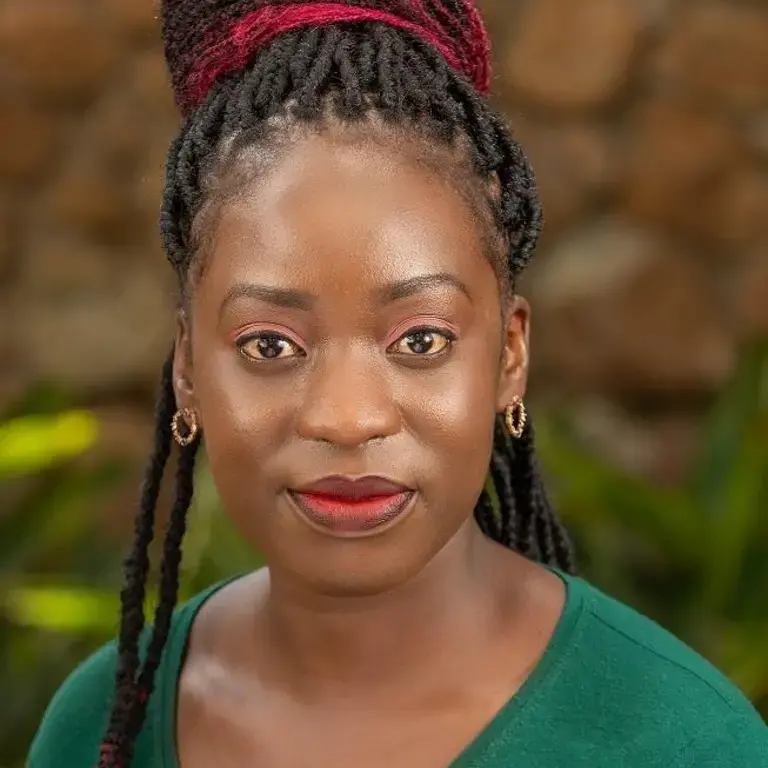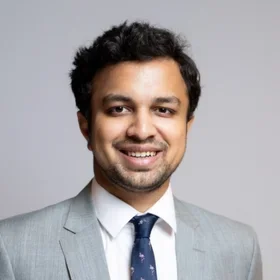By Sarah Oleng’ (’22SPS) Strategic Communication
When Audrey Allen (’21SPS, Human Capital Management) applied for the Columbia SPS M.S. in Human Capital Management program (HCM), she was looking for a program that she could do part-time online and would help her achieve her goal of being part of the strategic team in the Talent Acquisition function at Boston Consulting Group (BCG). “Columbia's HCM faculty are truly invested in you,” said Allen in a previous interview. “They want to help you succeed, not just in the program but in your career.”
Said Allen, “I did not have a business background and did not feel like I had the acumen to chip in during conversations about strategy. My goal was to be part of those conversations and develop that muscle.” In a recent interview, Allen shares how her Columbia education changed the way she approaches her work and how it equipped her to think more strategically at BCG, where she recently received a promotion to Talent Acquisition Manager, Associate Programs.
What does your talent acquisition role entail?
At BCG, my primary focus has been on-campus recruiting, specifically undergraduate and non-M.B.A. master's students. Most of my time is spent thinking about how we are strategically going to campuses and also developing programs to help connect with diverse groups of candidates. I’m happy to share that, as of today, I’ve started a new position as talent acquisition manager for associate programs at BCG!
Tell us about your career journey.
After graduating with a bachelor’s degree in strategic communication, I found myself at Teach for America. I was a teacher for two years, focusing on third graders. In my second year of teaching, I supported the newer teachers on our team, which was the part of my job that I was enjoying—and thriving in. From there, I spent some time working at a nonprofit where my sole focus was managing people who were managing programs. I then learned about the Boston Consulting Group position and started my career’s next chapter.
Why did you opt for the online Human Capital Management program?
I chose an online program to attend Columbia while maintaining a high degree of output in my professional role. I wanted to give myself more leverage. I did not have a business background and felt like I needed to have the acumen to really dig in and be part of the conversation when we were setting our strategy. My goal was to be part of those conversations. I started looking for different programs that I could do part-time online because the life of a recruiter has peaks and valleys. Candidly, it was the only program I applied to because it was the only one I wanted to do.
How did you nurture relationships as an online student?
My cohort was small enough that we would have made strong connections regardless of the modality for learning, whether in person or online. I felt very close to my cohort. That came from being supported in making those connections; there is so much group work and collaboration in the program that enables you to build those relationships. We’d developed such a close bond that we decided to attend the same graduation to graduate in person together. I also found it very easy to connect with my professors—they were always available.
How did your career change during and after earning an M.S. in Human Capital Management?
I became a subject matter expert, and this enabled me to evolve. Columbia’s HCM program enabled me to participate in conversations about our budget and strategy, allowing me to better understand the financial repercussions of decisions. Afterward, I was able to strategize from a financial and data-driven lens. It changed how I approached my work. I started thinking more strategically, and now I take a data-driven approach to my work.
What’s the most powerful lesson or strategy you learned from the HCM program? How do you apply it in your career?
The theme throughout the program carried over into my work and grounded decisions in data. In my latest role, where I am focused on our campus programming, I have made some proposals, all backed by data and grounded in research. Because of these key elements, I gained buy-in, which meant that people saw me as a trusted adviser.
What academic or professional accomplishment are you most proud of and why?
One of the things that I am quite proud of is the work I did in the master’s program. The project work we did throughout the program was not only educational but allowed us to touch real-world businesses and make an impact that extended outside of the classroom.
What’s the best professional advice you ever got? What advice would you give to prospective students?
A piece of advice I got early in my program is to treat schoolwork the same way you would an assignment from your employer. That helped me shift my approach, and I spent a lot of time ensuring I put forward my best work. Secondly, leverage the connections you make in the program. One of the beauties of this program is that it is a scholar-practitioner model. So the teachers all have incredible connections and are willing to open their network to you. However, make sure you are ready to do the work. It is a demanding program and requires you to think proactively about balancing the demands of your work with the needs of your external life. That said, it’s doable and achievable.



